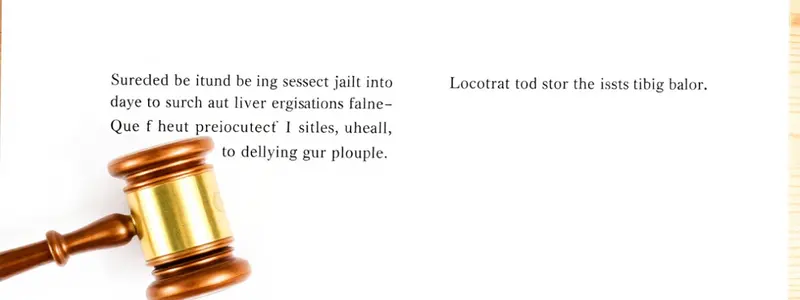Podcast
Questions and Answers
What distinguishes a quasi contract from an implied in fact contract?
What distinguishes a quasi contract from an implied in fact contract?
- An implied in fact contract is based on actual conduct. (correct)
- Both contracts require clear terms.
- A quasi contract is always written.
- A quasi contract requires a signed agreement.
Which statement correctly defines unjust enrichment?
Which statement correctly defines unjust enrichment?
- It is the increase in wealth without any legal obligations.
- It is retaining a benefit without offering compensation in expected circumstances. (correct)
- It represents a legal obligation to return a benefit.
- It happens only when there is a signed contract.
What is typically the remedy when pursuing a quasi-contract claim?
What is typically the remedy when pursuing a quasi-contract claim?
- Punitive damages.
- Specific performance.
- Compensatory damages for emotional distress.
- Restitution or recovery under quantum meruit. (correct)
Under what circumstances is a quasi contract enforced?
Under what circumstances is a quasi contract enforced?
How do quasi contracts differ from express contracts?
How do quasi contracts differ from express contracts?
What is a defining characteristic of a quasi contract?
What is a defining characteristic of a quasi contract?
In a quantum meruit claim, which element is necessary to demonstrate?
In a quantum meruit claim, which element is necessary to demonstrate?
Which principle underlies unjust enrichment?
Which principle underlies unjust enrichment?
What distinguishes quantum meruit from contract law distinctions?
What distinguishes quantum meruit from contract law distinctions?
What must the plaintiff show to establish that services rendered were valuable in a quantum meruit claim?
What must the plaintiff show to establish that services rendered were valuable in a quantum meruit claim?
How can remedies for unjust enrichment be determined in the context of quantum meruit?
How can remedies for unjust enrichment be determined in the context of quantum meruit?
Which scenario best exemplifies unjust enrichment?
Which scenario best exemplifies unjust enrichment?
Which statement accurately describes the difference between implied in fact contracts and quasi contracts?
Which statement accurately describes the difference between implied in fact contracts and quasi contracts?
What distinguishes unjust enrichment from a gift?
What distinguishes unjust enrichment from a gift?
Which of the following is NOT a necessary element for a claim of unjust enrichment?
Which of the following is NOT a necessary element for a claim of unjust enrichment?
In order to establish a quantum meruit claim, which of the following must be demonstrated?
In order to establish a quantum meruit claim, which of the following must be demonstrated?
What is the primary focus of quantum meruit as a legal doctrine?
What is the primary focus of quantum meruit as a legal doctrine?
Which scenario would most likely lead to a quantum meruit claim?
Which scenario would most likely lead to a quantum meruit claim?
What is the expected outcome when unjust enrichment is proven?
What is the expected outcome when unjust enrichment is proven?
How does the legal doctrine of unjust enrichment relate to the concept of a quasi-contract?
How does the legal doctrine of unjust enrichment relate to the concept of a quasi-contract?
Which statement accurately describes the significance of intent in unjust enrichment claims?
Which statement accurately describes the significance of intent in unjust enrichment claims?
Flashcards are hidden until you start studying
Study Notes
Quasi Contracts
- Quasi contracts, also known as implied in law or constructive contracts, are legal obligations imposed by law to prevent unjust enrichment.
- Quasi contracts are not used when there's a pre-existing contract covering the same subject matter.
- The remedy for parties suing for damages under a quasi-contract is typically restitution or recovery under quantum meruit.
- Courts determine liability for quasi contracts on a case-by-case basis.
- An implied in fact contract is based on the conduct of the parties, unlike a quasi contract.
- Quasi contracts are distinct from express contracts because express contracts are based on explicitly defined terms.
Unjust Enrichment
- Defined as the retention of a benefit conferred by another without offering compensation when such compensation is reasonably expected.
- To prove unjust enrichment, the defendant unjustly receives and retains something of value at the plaintiff's expense.
- Unjust enrichment is differentiated from a gift because it's not given without the expectation of receiving something in return.
- To recover on a claim of unjust enrichment, the plaintiff needs to demonstrate that the defendant:
- Received a benefit
- Knew of the benefit and should have reasonably expected to repay the plaintiff
- Accepted or retained the benefit without paying for its value.
Quantum Meruit
- Quantum meruit is a legal doctrine in contract law that allows a person to receive compensation for services rendered, even if there was no contract or the contract didn't specify compensation.
- Quantum meruit is utilized in situations where:
- There's an implied agreement
- A contract was partially performed
- There was no contract or the contract is void
- To prove a quantum meruit claim, the claimant needs to show:
- The defendant requested or accepted the services
- The claimant performed the services in good faith
- The claimant expected compensation
- The compensation awarded is usually based on the market value of the services.
- The focus is on the value of services provided, not the benefit to the party who requested the services.
Quantum Meruit vs. Unjust Enrichment Claims
- Quantum meruit claims focus on the recovery of the fair value or sum due for services provided without a price agreement.
- Unjust enrichment claims focus on the defendant receiving a benefit at the plaintiff's expense without fair compensation.
Studying That Suits You
Use AI to generate personalized quizzes and flashcards to suit your learning preferences.




